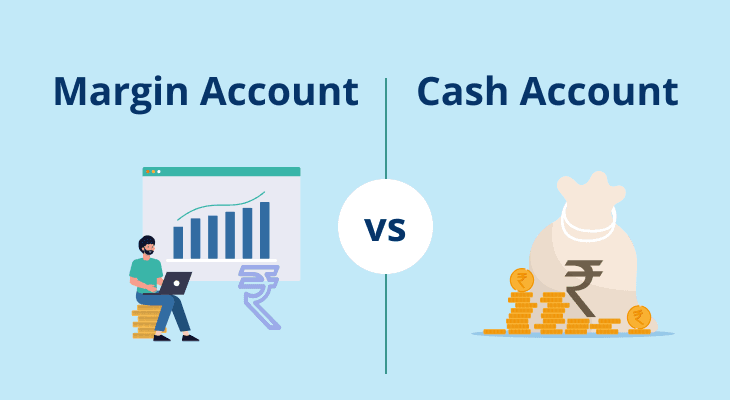
Why Should One Have A Demat Account?
In India’s growing digital economy, investing has become simpler and more efficient. One of the key reasons for this transformation is the Demat account; a digital repository for your investments in stocks, mutual funds, government bonds, ETFs, and more.
If you're wondering “what is a demat account”, this article is for you. In it, we’ll explore its key benefits, why having one is essential for any investor, and how it dramatically simplifies your investment journey.
What Is a Demat Account?
A Dematerialised (Demat) account holds your financial investments, like shares, mutual funds, and ETFs, in electronic form, much like a bank account does for money. The concept was formally introduced in 1996 by the National Securities Depository Limited (NSDL), and regulated by the Securities and Exchange Board of India (SEBI).
Before this shift, shares and securities were held in physical paper form, which made investing cumbersome and risky. Investors had to deal with paper certificates, which could be lost, forged, or delayed due to postal issues or manual errors. The Demat infrastructure replaced physical share certificates with digital equivalents, bringing greater convenience and security to investors.
This digital shift not only eradicated paper clutter and stamp duty hassles but also created the foundation for seamless online investments. You can now easily open a demat account online, start trading, and manage your portfolio from anywhere thanks to just three identifiers: your DP ID, Beneficiary Owner ID, and linked bank account.
Key Benefits of Having a Demat Account
Paperless and Secure
No more piles of share certificates. Demat accounts store everything digitally, making your holdings tamper-proof.
Automatic Corporate Updates
Dividends, bonus shares, stock splits; everything gets reflected directly in your account without manual intervention.
Swift Trading and Settlement
Equity trades settle within T+1 timelines. Prompt credit/debit ensures your portfolio stays current as orders execute.
Diversified Investment Options
Modern Demat accounts support equity, IPOs, ETFs, government bonds, mutual funds, REITs, and ELSS – all in one place.
Easy Portfolio Tracking
Mobile apps and dashboards show your holdings, performance, and P&L in real-time, helping you make timely decisions.
Additional Read: Features & Benefits of a Demat Account - Demat A/C Advantages
Why Should One Have a Demat Account?
Access to All Financial Markets
Opening a Demat account unlocks access to equity, debt, mutual funds, IPOs, and other publicly traded instruments.
Flexibility to Invest from Anywhere
Buy, sell, or apply for IPOs anytime from your phone or laptop without the need for physical presence or paperwork.
Built-In Conversion for Learning
New investors can begin with small stocks or fractional mutual fund units and learn how markets work hands‑on.
Optimum Time Management
With a single Demat account, you eliminate the need for multiple paper-based systems and manage everything in one place.
Smooth Transfer & Gifting
Transferring holdings, gifting shares, or dematerialising physical papers is seamless, done online or through a single form.
How It Simplifies Investing and Trading
A Demat account isn't just for stock traders. It significantly eases the process of long-term investing, especially if you plan to build a diversified portfolio with mutual funds, ETFs, government bonds, and even IPOs.
For Traders
1. Quick Execution of Buy/Sell Orders
When trading in equities, the Demat account automatically updates your holdings after each transaction. Execution is real-time, and settlements typically occur within T+1 days.
2. Apply for IPOs with Ease
Once you’ve applied for an IPO via your broker or bank (using ASBA or UPI), the allotted shares are directly credited to your Demat account. You’ll see them appear automatically on listing day.
3. Access to Derivatives Settlement
While F&O instruments don’t require a Demat account directly (they're cash-settled), physical settlement of certain options now needs a linked Demat account to receive/tender the underlying shares.
4. Automatic Handling of Corporate Actions
If you hold a stock that declares a bonus issue, rights issue, or split, your demat account gets updated automatically without the need for physical forms or approvals.
5. Ease of Operation
Every action, like buying, selling, pledging shares, getting dividends, or updating holdings, happens within a few clicks. It eliminates the time lag and paperwork of earlier times.
For Investors
1. Hold Mutual Funds and ETFs in One Place
Many brokers now offer the facility to hold your mutual fund units and ETFs in the same Demat account where your stocks are stored. This gives you a consolidated view of all your investments in one dashboard.
2. Track Performance Seamlessly
With your holdings digitised, you can track their growth or decline over time, across all asset classes. No need to maintain multiple folios or log into separate platforms.
3. Auto-Credit of Corporate Actions
In case of ETF dividends or mutual fund bonuses, units or payouts are directly reflected in your Demat or linked bank account. It removes the need for investor follow-up.
4. Invest in Government Bonds and Sovereign Gold Bonds (SGBs)
Instruments like SGBs and RBI bonds can also be held in a Demat account, making it easy to access safer fixed-income options within your equity portfolio.
5. Easy Redeem and Switch Options
In case of ETFs or listed mutual funds, buying and selling becomes as simple as placing an order in the stock market.
Additional Read: Eligibility Criteria to Open a Demat Account - Demat A/C Eligibility
Things to Keep in Mind
Choose the Right Broker
- Charges: Compare account opening, transaction, and annual maintenance fees.
- Platform & Support: Look for an intuitive app and 24×7 customer service.
- Research Tools: Check for research reports, stock screeners, fund trackers.
- Regulatory Compliance: Ensure the broker is registered with SEBI and uses recognised depository partners (CDSL/NSDL).
Understand All Fees
Most brokers levy account opening fees, annual maintenance charges (AMC), and transaction costs per trade. Choose a plan that suits your expected activity level. Naturally, lower the costs, more gains you retain.
Maintain Bank-Linkage
A functioning bank account linked via UPI or ASBA is essential for IPO participation and fast settlements.
Set Strong Account Security
Use robust passwords and two-factor authentication. Share your DP ID and email only with trusted parties.
Maintain Good Transaction Records
Track transactions digitally via broker statement or demat portal. This helps with taxes and audits later.
Update Details Promptly
Any change in KYC, address, or contact info should be updated immediately to prevent failed trades or missing communications.
Additional Read: What is Demat Account: Aims, Objectives, & Significance
Conclusion
Opening a Demat account is a foundational step for anyone serious about investing. It consolidates all your holdings into a single, secure, and easily accessible platform, and enables seamless participation in India’s financial markets.
While the process is quick and simple, the benefits a paperless portfolio, automatic corporate actions, improved liquidity, diversification, and learning opportunities are substantial. Whether you’re just beginning or scaling your portfolio, having a Demat account is no longer optional, but a key part of modern investing.
FAQ
What is a Demat account and why is it important?
A Demat account is a digital vault for holding shares, mutual funds, and other securities. It eliminates paper certificates, making investing safer, faster, and more efficient, especially in today's online trading ecosystem.
When and why was the Demat system introduced in India?
The Demat system was introduced in 1996 to modernise India's stock market infrastructure. It addressed issues like loss, theft, and forgery of physical shares while speeding up the process of trading and settlements.
How can I open a Demat account online?
You can open a Demat account online by submitting your PAN, Aadhaar, and bank details on a SEBI-registered broker’s platform. Most brokers complete e-KYC and activate the account within 24–48 hours.
Can I use one Demat account for all my investments?
Yes, most brokers let you hold shares, mutual funds, ETFs, bonds, and even IPO allotments in a single Demat account, offering a unified view of your entire investment portfolio.
Are there charges for holding or using a Demat account?
Yes, brokers may charge an account opening fee, annual maintenance charges (AMC), and transaction fees. Charges vary between full-service and discount brokers, so it's good to compare before choosing.
What role does NSDL or CDSL play in my Demat account?
NSDL and CDSL are the two licensed depositories in India that hold your securities. Your broker acts as an intermediary (Depository Participant), facilitating access and transactions with these entities.
Is it safe to keep my shares in a Demat account?
Absolutely. Demat accounts are highly secure and regulated by SEBI. Holdings are protected digitally and transactions are authenticated through OTPs and other security measures for added safety.
Can I have multiple Demat accounts with different brokers?
Yes, you can open multiple Demat accounts with different brokers. However, managing multiple accounts can get complicated, so it’s best to consolidate unless you have distinct investment strategies.
How do corporate actions reflect in my Demat account?
Corporate actions like dividends, bonus shares, or stock splits are automatically processed and reflected in your Demat account or linked bank account without you needing to take any manual action.
Is a trading account the same as a Demat account?
No. A trading account is used to buy or sell securities, while a Demat account stores them. Both accounts work together—when you buy a stock via your trading account, it’s stored in your Demat.


